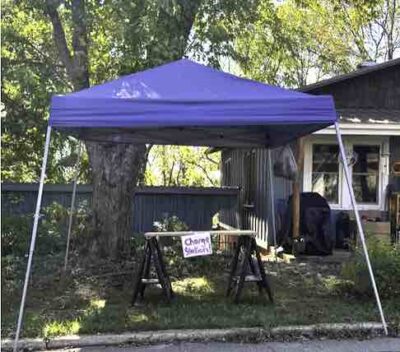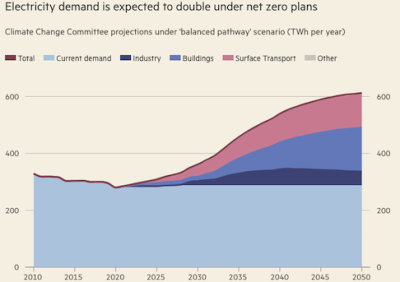
Kenyan company Sun King calls itself “the world’s largest off-grid solar energy company.” That’s not just marketing hyperbole—and it’s a statement that reveals how the energy landscape has shifted beneath our feet. The company’s recent $156 million securitisation (meaning sale of their existing revenue streams), the largest of its kind in Africa, isn’t just another funding round. It’s a watershed moment that signals the off-grid solar industry has finally matured from a niche development sector into a legitimate financial asset class that commercial banks are willing to bet serious money on.
But here’s what makes this story truly compelling: Sun King’s claim to being the world’s largest isn’t based on the usual Silicon Valley metrics of valuation or venture capital raised. Instead, it’s built on something more meaningful—actual impact at scale. With over 27 million solar products sold, 23 million homes powered, and $1.3 billion in solar loans extended to nearly 10 million customers across 46 countries, Sun King has quietly assembled the largest customer base in the off-grid energy sector while most of us were still debating whether distributed solar could ever be commercially viable.
For the first time, commercial banks are treating off-grid solar as a mainstream financial asset rather than a development experiment. This legitimisation opens doors to capital pools that dwarf traditional development finance, creating the potential for unprecedented scale in clean energy deployment.
The timing of this funding is significant. As the world grapples with energy security, climate change, and the persistent challenge of providing electricity to 1.8 billion people who still lack reliable access, Sun King’s securitisation proves that market-based solutions can scale to meet these challenges—if we’re willing to think differently about how energy systems work.
Off-grid solar companies lacks the standardised metrics that financial analysts need to define leadership in traditional energy markets. Unlike utility-scale solar where gigawatts of installed capacity provide clear rankings, or residential solar where revenue figures tell the story, off-grid solar operates in a more complex ecosystem where success must be measured across multiple dimensions.
Sun King’s claim to the crown rests on several metrics. First, customer reach: with nearly 10 million individual customers served, Sun King has built a customer base that dwarfs its closest competitors [1]. For context, d.light, another major player founded the same year as Sun King’s predecessor Greenlight Planet, reports revenue of approximately $217-309 million annually but serves significantly fewer customers [2]. M-KOPA, the Kenyan fintech-solar hybrid, boasts higher reported revenue at $618.8 million but operates primarily in East Africa with a more limited geographic footprint [3].
What’s particularly striking is Sun King’s product volume: over 27 million solar products sold represents a scale of manufacturing and distribution that few companies in any sector achieve, let alone in the challenging off-grid markets of Africa and Asia. This isn’t just about bragging rights—it demonstrates something crucial about the company’s operational capabilities and market penetration …

UK Government announcements on energy policy today make clear the profits of international energy companies will trump UK households need for lower energy bills. BBC interviewer Nick Robinson skewered Ed Miliband on a morning interview, in which he accused Labour of “guesswork” over the UK’s energy preparedness. In particular Miliband failed to provide a shred of evidence that prices would drop as a result of the new energy policies.
Each household pays an average of £1750 for energy each year, so it is their money being spent to criss-cross the UK with copper cabling, shipped over from the mines of Zaire and the DRC. The decisions being made now will determine how hundreds of billions will be spent over the next 5 years. And there has been no meaningful consultation with anyone outside of tight circle of Miliband’s favoured energy execs – the same old story.
Miliband promises no power cuts this winter
Only a small part of the total investment is to come from Great British Energy. The multinational energy companies are expected to come up with £40bn a year according to Chria Stark, from “Mission Control”. So far just one major utility company has announced concrete investment plans as part of a vast decarbonisation programme that is supposedly to be completed in the next 5 years.(Iberdrola pledged £22b, although there have been few details.)
“What we are setting out today is a plan for a new era of electricity,” Miliband told millions of listeners on the Today show. But actually there was no plan. No specifics, no roadmap, and no timing for any of his claims.
Still no clue how they will spend the £8.3 billion
There was remarkably little detail about Great British Energy , the centrepiece of the government’s growth mission – no word on exactly how it would be operating, or what its first priorities would be. But enough was released to get a clear picture.
Hidden in the small print of the government’s accompanying press release, was piece of news. It appears the £8.3bn pledged to Great British Energy will be spent almost entirely on local or community energy. That is the good news. On the other hand, much of this money will be funnelled though local authorities which means it may be delayed by bureaucracy, and local interest groups will also slow down projects.
And based on the progress to date, it will be another year before any of those local community funds begin funding actual projects.
The key line in the announcement earlier today was one saying Great British Energy will spend its entire £8.3b on ”increas(ing) the quantum and consistency of Community Funds for transmission networks.”
Note the word consistency. The entire top down approach will dependent on rigid rules, that will stifle innovation and slow down the-already lumbering process to a snail’s pace
Local authorities will have little freedom …

A reckoning is due for Great British Energy – the UK government’s nascent £8.3b industry accelerator. Announced as the centrepiece of the UK “growth mission” its launch was accompanied by the news that it had spent £640m buying the nerve centre of the National Grid – the control room that apportions energy across the country on a live daily basis. In 2035 we may look back on that deal and think “only £640m…” British energy Minister Ed Miliband has firm plans to waste billions by then – on carbon capture and Contracts for Difference, as well as reparations to low-lying islands in the Pacific, and thousands of hotel nights spent attending Cops30-40.
Literally anything could happen to the UK energy supply this winter, and almost all of it is bad.
But there is also something we can all do in our individual communities – to prepare for possible power cuts, this winter or any other winter.
After all, every household in the UK spends an average of £1700 a year on energy.
Ed’s big problem is that he has raised expectations. He announced that not only will he solve the nation’s energy conundrum, but that he will also save money while doing it, keep the lights on, build 1.5m new home and launch a new global Britain on the back of it.
The energy industry, and the entire country, is waiting for action. But Britain can never be an energy super-power, and Ed must know this.
Consider the facts – Annual GB electricity consumption is 292.7 terawatt-hours (TWh) of electricity in 2023, about the same as Texas, a vast state with multiple connectivity issues in outlying areas. The UK has a small, compact grid, which is currently undergoing major re-engineering for decarbonisation.
Electricity demand is forecast to grow at 5% a year, but generation is not increasing at the same pace until 2029. The maximum power to be provided by two new nuclear plants planned (if they are on time it would be a first) is 56TWh. And Ed wants sharp reductions in oil and gas for electricity production. That produces a shortfall of another 50TWh by 2029
Then there is a 10-yr waiting list for new housing estates to get on the grid. That’s right – ten years from time of application to secure a supply from the grid. Yet Labour says it will build at least a million homes in the next 4 years. How will it power the new homes? There is also a 10-yr waiting list for new solar farms to go on the grid, due to structural problems that require hundreds of miles of new cabling and pylons. Quite simply, the grid is not fit for purpose, and nor is there the slightest chance it will be re-engineered until well after 2030. Nevertheless, the government says it wants to decarbonise the electricity system by 2030.…

As residents of Asheville, NC, queue to buy water, and stalk the streets of this artsy town looking for somewhere to charge their cell-phones, their entire view of the mountain enclave has been turned on its head. A week after Hurricane Helene, nearly half the population is still waiting for its power to be turned back on, according to off-grid analysis of a range of press releases, social media reports and industry data.
Thousands moved here over the past 10 years, precisely to reduce the risks of extreme weather, but many of the newcomers chose not to take out flood insurance because premiums were high, and are now facing devastating losses. They accepted assurances from Duke Energy, which supplies 95% of the power in the region, that all possible was being done to improve resilience and decarbonise the energy supply.
But current reports indicate nearly half Asheville’s 250,000 population is still without power and water. Across the Carolinas, where “major portions of the power grid… were simply wiped away, ”a million customers remain in the dark, according to PowerOutage.us.
Duke Energy has faced criticism in the past regarding its response to outages, particularly during severe weather events. Anecdotal accounts often cite concerns over reliability, particularly when comparing service restoration times to national standards.
August 24, 2024: A severe thunderstorm swept through Asheville, resulting in localized outages as high winds knocked down power lines (Citizen Times).
July 14, 2024: A summer storm led to multiple reports of outages across the city as lightning struck power infrastructure, impacting several neighborhoods (Citizen Times).
June 1, 2024: Duke Energy reported outages affecting thousands due to a strong weather system that produced heavy rain and gusty winds (Citizen Times).
May 15, 2024: A significant windstorm knocked out power for many residents, with gusts causing tree falls and power line damage across Asheville(Citizen Times).
I live in Asheville. Where is @DukeEnergy. They said they needed a day or two to assess the situation. its been almost a week and even in areas that were not affected by the flooding where Duke could be working on the the power, they are absent. Is Asheville another Hawaii?
— 🇺🇸 TakeBackAmerica444 🇺🇸 (@dark_to_light44) October 3, 2024
In Buncombe County where Helene hit hardest, which includes Asheville, at least 95,000 customers remain without power. In neighbouring Henderson County, 52,000 customers are still without power. Rutherford and McDowell counties still report about 23,000 and 19,000 outages, respectively.
Duke Energy has announced a $1m charitable donation to the community, but made no prediction on when the power will be back on.…

Over 14,000 people have signed a petition against large solar farms in their area following plans for a development covering 2,000 acres (810 hectares) in Wiltshire.
Lime Down Solar Park is designed to create 500MW of clean energy – said to be enough to power 115,000 homes – from six sites in villages in the county.
Developer Island Green Power says it will give a “net gain in biodiversity”. But locals say it will simply take away land that could be used for food growing, and provide no direct benefit to the local community.
The sites would be connected into the National Grid’s substation in Melksham, the proposals say.
The finance behind Lime Down is being provided by Macquarie Bank, an Australian company dubbed the Vampire Kangaroo — an Antipodean adaptation of the ‘vampire squid’ label applied to Goldman Sachs for the way it sucked up money — so most of the income may end up overseas.
The company has been widely accused of piling up debt at Thames Water, which it owned from 2006 to 2017, contributing to the problems at the water company.
With so many question marks over the environmental credentials of solar parks, it should be a cause for deep concern that Macquarie is involved .
The local MP, James Gray, who is against the scheme, blames ‘Wall Street hooligans’ for inflicting the Lime Down plan on his constituency and believes a British company would deal with the local community more sensitively.
He says this is not a party political issue as all the mainstream parties are fully behind Net Zero, as he is. He argues a Starmer-led government would be even more determined to push through Net Zero policies.
As locals see it, the whole political class appears to be ranged against the rural community of North Wiltshire, and their votes have nowhere to go on this issue except to fringe parties who have no hope of forming a government. So there is little political pressure on the Secretary of State to turn it down.
Many local residents are furious that big, titled landowners have been secretly in negotiation with Island Green and there are accusations of greed. On several estates, the land being offered for solar development has recently been taken back from tenant farmers. The rent being offered is a closely guarded secret, but sums in excess of £1,000 per acre per year are routinely advertised by renewables companies on the internet, perhaps five times the return that might be expected from farming.
Some farmers have been open in saying that they did not think there was a future in farming any more and this offered a lifeline. Others had been told by the developers that they would be surrounded by the solar complex whether they liked it or not, and had taken the attitude that if they couldn’t beat the development they …

Whatever your views on the Arab-Israel conflicts, and on the Hamas atrocities of October 9th, nobody can no doubt that the humanitarian crisis demands immediate action by all of us – especially now that UNWRA has been exposed as a deeply suspect organisation. Sending money to huge bureaucracies like Save the Children or UNWRA – you know for sure that much of it goes in admin, bribes and other priorities than your own.
So if you want to help Palestinians on the ground in Gaza, who are surviving on tiny morsels of food, limited water and intermittent energy, if you want all your money to go straight to those in need – then we have a way.
Our cameraman in Gaza, will spend what we send him on buying solar panels, and film himself donating them to ordinary families. He has already been donating cash this way – brought in via Egypt.
He shot our latest Youtube footage, showing him distributing donated money – 50 shekels at a time. You can see the ID cards of the women as he hands them the money. You can see they are innocent citizens and not terrorists. Watch the video on our socials, and tell your friends.
Insta
https://www.instagram.com/reel/C3SFn31IQld/?igsh=a3Nxa3R4YjFnNDZo
Facebook
https://fb.watch/qaYFhPNFqc/
Tiktok
Banned
Youtube shorts
But solar panels are more valuable than money – they are the gift that keeps on giving. We have found a supply of panels in Gaza, and any donations received will be used to purchase them and give them to communities in need of energy to power their lights and phones.
Please paypal to nick@off-grid.net and we will get the money straight out there the next day.
Mark your paypal: Solar Panels for Palestine.…

Retired film-maker Christopher Hamblin is unmoved at the prospect of a lump-sum payment from developers to compensate him for electricity towers and cables they want to build near his village in the east of England.
“That’s the trouble with these guys — they know the price of everything and the value of nothing,” says the 86-year-old resident of Ardleigh in Essex, a centuries-old settlement surrounded by some of the country’s most recognisable landscapes.
Hamblin and his fellow residents are part of a growing backlash in local communities across Britain against the expansion of power grids as the steps needed to decarbonise the economy start to encroach on them.
In an attempt to counter this resistance Nick Winser, the government’s electricity networks commissioner, has recommended lump-sum payments to households living close to proposed transmission lines. It was one of several measures aimed at cutting in half the 14 years it takes to complete these projects.
The government wants to decarbonise the electricity sector by 2035, while demand for electricity is expected to double or treble as the economy moves away from fossil fuels under its legally binding target of net zero carbon emissions by 2050. Electric Vehicles and AI data centres have added a crushing new burden.
The offer of cash for pylons (as towers are named in the UK) has not changed the mood in Ardleigh, which is in the path of a new 183km north-south high voltage transmission line that National Grid wants to build through the East Anglian countryside. It would run from Norwich in Norfolk down to Tilbury in Essex and bring in renewable electricity generated from new offshore wind farms.
It is one of several new electricity transmission lines being planned around Britain to move clean electricity often generated in remote coastal locations into more populated areas where it is needed.
The East Anglia plan mainly involves cables carried on 50m-tall pylons dotted across the countryside, including around Ardleigh, which sits on the edge of the protected countryside of Dedham Vale, made famous in the 19th-century masterpieces by local artist John Constable.
The reason for the opposition varies, ranging from blighting the landscape to the impact on farmers or health, but most opponents would rather see the power lines replaced by undersea cables running from the wind farms most of the way down to Tilbury.
“Every single house within that location — we will be in a cage of electricity pylons,” says Chris Whitfield, chair of Ardleigh parish council, pointing out part of the proposed route on a map.
Campaigners are well-organised, learning from other groups across the country, and are prepared to resort to legal action.
Local farm owner Charles Tritton suggested the anger is such that it could hurt the Tory party electorally. “The whole of East Anglia is pretty Conservative,” he said. “Add one or two per cent [swing vote] due to this …

The off-grid showhome started as a lockdown project – a spur of the moment bid for some land in an online auction in 2020.
Now it is a full -fledged reality and our next open weekend is August 27th 2023 – we welcome local residents who want to see what is happening , and also anyone who is considering a similar project and needs advice on how to build. Contact news@off-grid.net for more info – You can also watch the youtube film which shows the building process. Go to https://www.youtube.com/watch?v=95qqnOWnfk4.
In years to come, the wood will benefit the environment in many ways, and also benefit the local community. After all – they helped to plant it after we put out a call on Facebook seeking volunteers. They will use the shed to make tea and shelter from adverse conditions.
Three local scythers turned up in a 1950s LandRover. They looked like the Detectorists from the BBC series starring Toby Jones, except that instead of metal detectors they had long handled Austrian scythes which they honed frequently, as they slowly scythed their way through bracken and overgrown grass without disturbing the earth beneath, saving all sorts of tiny wildlife from abrupt eviction.
Each tree required a stake to be pounded in the ground, then a spade-slit for the tiny sapling itself. The tree-guard slides over the tree and is fastened to the stake and presto – add ten years and you have a mature English woodland.
It was laborious process and by the end of the first day we had only scythed half the field and planted 150 trees. Out of 500
We headed back up the track expecting to return a week later. But then came another lockdown. The second day of planting never happened a year later.
Now the woodland is beginning to take shape, the shed is built and our neighbours have erected their shelters as well.
Please come and visit – and help plants some more trees.…

Homeware stores report a 60% year on year increase in website searches like hot water bottle, candle and flashlight. These are baby steps. You don’t need to become an off-grid survivalist to learn a few of our tricks. This head torch (In the UK – https://amzn.to/3ATUbfG) for example – may look a tad eccentric, but its more convenient during a blackout than candles or a handheld flashlight – you are walking around in your own pool of light!
Batteries last a month of daily use, wich is fortunate since the UK National Grid warned lights could go out on “those deepest, darkest evenings in January and February” because of reduced gas imports from Europe. In the US, major cities are finding that extreme weather can easily disrupt their utility supply, randomly and with increasing regularity.
Both American and British grid-tied households are apprehensive about what to expect. The ideas and products in this list will help you take back control of your power bill, and save money from reduced energy consumption.
1. Work and comms
Top of the list for the WFA generation is a reliable internet connection and long battery life. If you have a laptop make sure its low-energy – (the latest HP https://amzn.to/3XLHhdN, or Apple 13” Macbook https://amzn.to/3ipApSS, both last over 13 hours of use). Mobile phones with a good battery life include the Android Asus https://amzn.to/3UgKO0I and this Apple https://amzn.to/3OP0SFy
You can connect the laptop via your mobile phone’s personal wifi hotspot. Alternatively, buy a data dongle that plugs into your laptop (and feeds off its battery) to connect it to the internet via the mobile phone network- best for international is the Huwai https://amzn.to/3Fd03mO – A mifi dongle does the same thing, plus allows several devices to wirelessly use the connection. Both these options require a data plan from a mobile phone provider.
2. Uninterruptible power supply
For your home broadband connection, Most most modern gas boilers need a permanent electricity supply, so if your power goes down then so does your central heating you need an uninterruptible power supply (UPS), which has a battery. A mid-range model can keep a typical 12V router seamlessly connected for a day, and a hot water pump in the evening. An APC UPS by Schneider Electric https://amzn.to/3EO6jQK for around £380 promises to keep a router and smartphone charger running for almost a day The more devices you plug in the shorter the UPS will last.
3. Battery pack
Either get yourself a big battery or a small one that fits in your purse or pocket – dont bother with the ones in between
Small portable battery packs charge your mobile phone, (like this one from Anker – https://amzn.to/3ucfDsB )when you are on the go, but are less handy in a blackout. Just make sure the power pack itself stays charged.
Big batteries like Bluetti and Jackery can set …
Ever since 2008, I have been puzzled as to why individual directors are never prosecuted for corporate crimes in the UK. At the time of the financial crisis, I tried placing numerous stories and TV docs on the subject but nobody wanted to know.
The announcement this month by the US Department of Justice that there is to be a “crackdown” on company executives, is the first sign that the tide is beginning to turn
It will cause an uneasy stirring in corporate circles from Los Angeles to London, where the result of a UK Ministry of Justice “Call for Evidence” on a new “failure to prevent economic crime” offence has been pending since March 2017. Even the government’s own supporters are ashamed of this failure and the Law Commission is now due to issue an update at any moment.
There is widespread distrust of the system in Britain because of the scale and variety of large companies which break the law without their directors facing any criminal charges. chief executives argue that they are worth their hugely inflated salaries, and take the credit in full when things go well, but when large companies are found to have broken the law, its remarkably hard it is to prove that the boss was in charge of the decision making process that led to the crime.
When the companies themselves are fined, it is the shareholders or customers that foot the bill, not the law-breakers themselves. The rules of the game are rigged in favour of the wealthy , who can afford armies of expensive lawyers and tie prosecutors in knots for years on end. This makes a mockery of Britain’s reputation for rule of law, and is harmful to democracy in general.
Sewage dumping by Southern Water
Take the current outcry in coastal areas all around the country over sewage dumping. Southern Water has been repeatedly fined over the dumping. A judge has unequivocally found that previous court rulings were flouted and n evidence of illegal sewage dumping was destroyed or falsified. Nobody individual ever been prosecuted, or as far as I am aware even investigated by police.
The fury currently being expressed in Parliament, and on the nation’s beaches by swimmers is not just at the stench of the sewage, but also at the cosy system which allows company directors to hide behind evidential barriers which were designed to be insurmountable.
Proving a “Controlling Mind”
The issue in the case of Southern Water, and almost every other large corporate prosecution, is the difficulty in proving that the offence was committed by a “controlling mind.” The CEOs and CFOs of our biggest companies, who are happy to take the credit for success, draw large salaries and even larger bonuses, are mysteriously absent from the wheelhouse whenever there is a criminal investigation. You could say that McAvity-like quality is their biggest talent.…
A Kentucky couple, who have been off-grid for more than five years, have set up a website to discuss the lifestyle.
Mark and Emily McCafferty tell their story on AccidentalHippies.com. The couple bought 16 acres of land and built a nearly 1,200-square-foot house that uses a combination of energy sources, including solar panels, a radiant heat system, a wood stove and propane. The house also features a rainwater catchment system.
According to a study by outdoor services provider LawnStarter, the Bluegrass State was the top state in America for living off-the-grid, which is defined as having a home that’s not connected to a utility company or co-op for a power source.
Kentucky ranked well across the metrics, LawnStarter said in a release. Besides having laws allowing for an off-the-grid lifestyle, the state received top marks for the number of rural health clinics per 1,000 square miles. According to ruralhealthinfo.org, the state has 252 such clinics
Other strengths included the state’s cost of living and its high marks for solar power potential, a temperate climate and sufficient precipitation.
Off-the-grid lifestyles are gaining in popularity. A 2019 study by Accenture noted that in some markets, residential and commercial demand for solar panels could top 15% within the next 15 years.
However, according to the experts, the lifestyle is not for everyone.
“In short, be ready to devote 100 percent of your days to your lifestyle,” said Gabriel Durham, the sustainability coordinator for the University of Houston’s Office of Sustainability. “Video games become farming, work commutes become hand-washing laundry, going out to see people becomes chopping firewood.”
Emily McCafferty said in a blog post on the site that living off the grid does not mean disappearing from society altogether. Instead, for them, it’s more about being mindful of the footprint they’re creating.
She states on her blog that people who may be interested in living off the grid should start creating self-sufficient habits in their current residence.
“Learn how to bake bread, mend clothes, can food, wire circuits, build from scratch, and so on,” she wrote. “There are hundreds of great homestead skills you can learn right where you are. The more prepared you are going into an off-grid building project, the better off you’ll be.”…